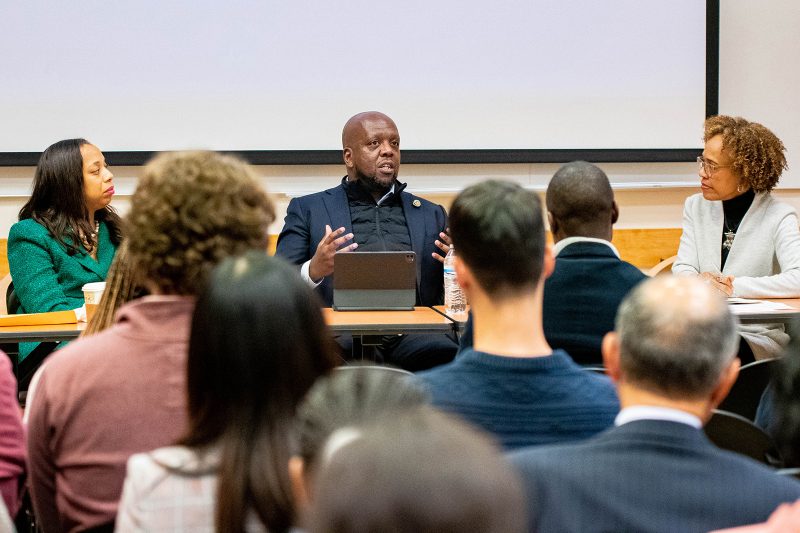On October 4, 2022, International Security Studies launched the Africa Security Program (ASP), a new research initiative, with the panel discussion, “Africa and the Russian Invasion of Ukraine.”
Benedito Machava, Assistant Professor of History at Yale and director of the new program, highlighted the program’s goals, including key questions of African security and the continent’s role in global affairs, countering violent extremism, global power competition, and responding to threats from climate change.
Panelists included Ambassador Martin Kimani, Permanent Representative of the Republic of Kenya to the United Nations, and Asha Castleberry-Hernandez, a major in the US Army Reserves who was until recently Senior Advisor to the Assistant Secretary for Near Eastern Affairs in the US Department of State.
Jackson Senior Fellow Bisa Williams, a former US Ambassador to Niger and Deputy Assistant Secretary of State in the Bureau of African Affairs, moderated the discussion.
Professor Arne Westad, Director of International Security Studies and Elihu Professor of History and Global Affairs, kicked off the event with opening remarks. “The Russian invasion has shown the increasing centrality of African states in international affairs,” he said.
The panelists agreed, noting how Russia’s war in Ukraine has created food shortages across the African continent, deepened tensions in the United Nations (where Kenya is currently a member of the Security Council), and ignited questions about the structural integrity of a rules-based international order.
Kimani noted that since the end of the Cold War and with increasing globalization, the world has become more multi-polar: “Today, American power is contested, and many African countries find themselves at a crossroads.”
Castleberry-Hernandez added that the United States “underestimated our near-peer competitors’ ambitions on the African continent,” citing China’s increasing investment in infrastructure, language training, technology transfer, and other soft-power tools across Africa.
When asked by Williams about Kenya’s position on the war in Ukraine, Kimani stated that his nation is deeply committed to the values of multilateralism. “We are against the invasion of Ukraine and any assault on Ukraine’s sovereignty or territorial integrity,” he said. “However, this doesn’t mean that we outright stand with the West,” where he noted that Africans and African students, especially, have often been discriminated against.
Kimani emphasized the importance of navigating the relationship between pragmatism and principle. “The rules-based order,” he said, “presupposes the idea that someone must police the rules. However, the whole fight is about who gets to police the rules. This is why we need a principle-based order.”
In response to questions from the audience, both panelists expressed support for United Nations peacekeeping operations around the world, food security for the Global South, and equitable approaches to global health and green energy. They highlighted that US President Joe Biden’s upcoming summit of African leaders, in December 2022, will be an opportunity to spur public and private sector investment into fertilizer production and food autonomy in Africa.
Castleberry-Hernandez also stressed the necessity of training the next generation in STEM fields, medicine, and infectious diseases. On the topic of youth engagement, Kimani said he hoped that modern technologies embraced and shared by young people everywhere will push policymakers to think more creatively.
